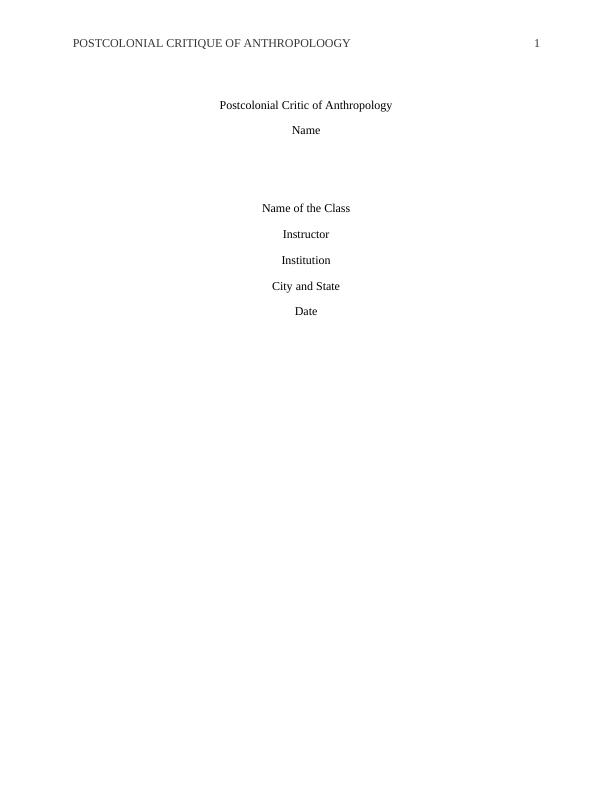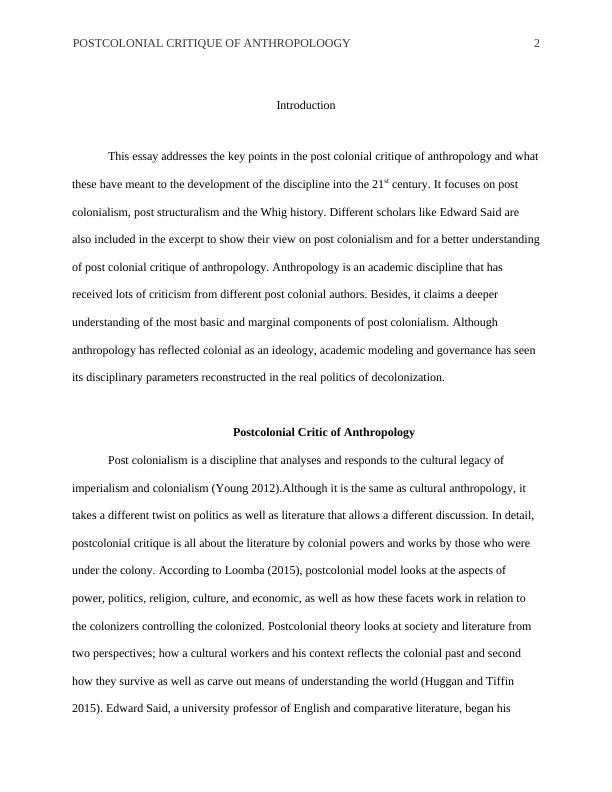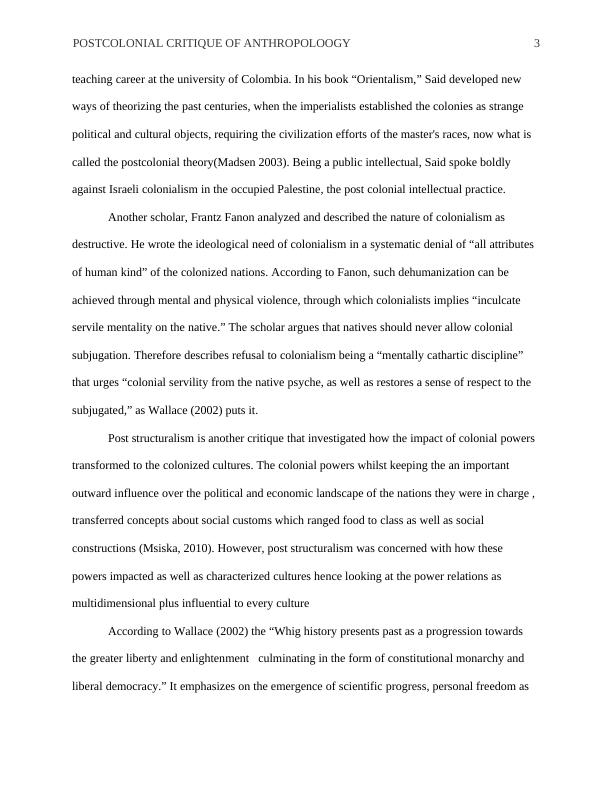Ask a question from expert
Postcolonial Critique of Anthropology
6 Pages1376 Words422 Views
CUNY Queensborough Community College
Postcolonial Critique of Anthropology (ANTH 101)
Added on 2020-03-04
About This Document
This document discusses the key points in the post-colonial critique of anthropology and what they mean for the discipline's development into the twenty-first century. It is also concerned with post-colonialism, post-structuralism, and Whig history. Anthropology is an academic discipline that has been criticized by various postcolonial authors.
Postcolonial Critique of Anthropology
CUNY Queensborough Community College
Postcolonial Critique of Anthropology (ANTH 101)
Added on 2020-03-04
BookmarkShareRelated Documents
End of preview
Want to access all the pages? Upload your documents or become a member.
Reviews of Edward Said’s Book Orientalism
|4
|755
|11
Postcolonial Literature: Addressing Consequences and Problems
|13
|4874
|37
Comparison of Postcolonial Thinkers: Homi K Bhabha and Gayatri Chakravorty Spivak
|9
|2352
|130
Representation of Postcolonial National Identity in New Zealand
|12
|3111
|36


